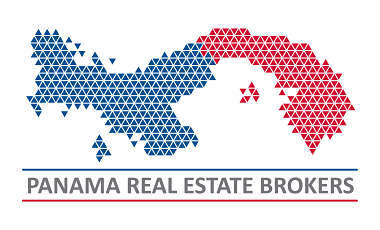
The Panama Properties Taxes Since 2019
Understanding Panama’s tax system is essential for anyone looking to invest in real estate here. The country’s property taxes are structured to promote investment and provide incentives for property ownership, making it an attractive option for international buyers.
In this guide, we will explore the different types of property taxes in Panama, how to calculate them, and strategies for maximizing your tax savings when investing in Panama real estate.
Panama Properties Taxes:
Property taxes in Panama are established under the Family Heritage Tax (Patrimonio Familiar Tributario) regulated by the Directorate General of Revenues (DGI). Understanding the nuances of these taxes can help property owners effectively manage their financial responsibilities and ensure compliance with local laws.
0– $120,000 (Exonerated) | $120,001 – $700,000 (0.5%) | +$700,000(0.7% ) |
Panama properties taxes until: US$120,000
It is crucial to note that for properties valued at $120,000 or less, owners are completely exempt from property taxes. This is a great incentive for first-time buyers or those looking to invest in lower-priced properties.
Example: properties from 0 to US$120,000 are exonerated.
In addition to the tax exemption, this bracket also encourages property owners to invest in renovations and improvements without the immediate concern of tax implications until their property value increases beyond the threshold.
How Calculate Panama properties taxes between US$120,000 until US$700,000
From USD120,000 to USD 700,000, the tax payment is 0.5%. And over the sum of USD 700,001, you pay an extra tax of 0.7%.
It’s important for property owners to keep accurate records of property values and any enhancements made to them. This documentation can be essential during tax calculations and can help mitigate any disputes with the DGI.
Example: apartments from USD$250,000, you pay taxes for USD$130,000 tax to DGI payment is USD$650 per year.
Using a detailed example, if you purchase an apartment for $250,000, you will only pay taxes on the amount exceeding $120,000, which is $130,000. Therefore, the tax owed would amount to $650 annually, a manageable amount that incentivizes property ownership.
If the property value is over USD 700,000, you calculate the Panama property taxes in the following way:
An example apartment of USD$900,000
Understanding how these taxes apply at higher property values is essential for effective financial planning. For instance, if you own an apartment valued at $900,000, you will apply the tax structure methodically to ascertain your tax obligations.
Calculating Panama property taxes over US$900,000
Property price from 0 – USD$120,000 exonerated
This tiered tax system can be beneficial for property owners as it allows for gradual tax increases rather than sudden jumps, helping to alleviate financial pressure.
From USD$120,001 until USD$580,000 you pay taxes for USD$580,000 = USD$2,900
From USD$700,000 until USD$900,0000 you pay taxes for USD200,00 = USD$1,400
The tax that you pay is USD$2,900 plus USD 1,400
Annually, Panama’s Property Tax is USD$4,300 dollars.
Annually, paying $4,300 in property taxes might seem substantial, but in the context of property investment, it is relatively low compared to other countries with similar real estate markets.
Second Homes, Commercial, And Industrial Panama Properties Taxes
| 0 – $30,000 (Exonerated) | $30,001 – $250,000 (0.6%) | $250,001 – $500,000 (0.8%) | + $500,000 (1%) |
For the case of second homes, and you living in Panama for example, beach homes, mountain homes, industrial and commercial properties, banks, and other financial institutions will be tax withholding agents.
Engaging with financial institutions as tax withholding agents can also streamline the tax payment process, reducing the burden on property owners and ensuring compliance with local laws.
In the case of houses, the financial institutions don’t be tax withholding agents.
Also, you can live happily and without complications in the Republic of Panama. You only need a real estate broker with experience. Second, the support of an experienced lawyer. Also, one certified public accountant qualification with experience and knowledge in Panama property taxes.
As a property owner, keeping a proactive approach in tax management can save you not only money but also time in dealing with any potential legalities that may arise from property ownership.
All this information you can check in DGI online Panama!
Moreover, as the real estate market in Panama continues to evolve, staying updated on changes in tax laws and incentives will empower you to make informed decisions that align with your investment goals.
By staying informed and connected with professionals who can guide you, you’ll be able to navigate the intricacies of Panama’s property tax landscape effectively. Knowledge is power when it comes to maximizing your savings and ensuring a successful investment experience in Panama.










